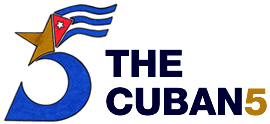By Kurt L. Schmoke
http://www.baltimoresun.com/news/opinion/oped/bs-ed-cuban-five-gross-201…,
To save Alan Gross, commute the sentences of the Cuban Five.
In 1999, I accompanied the Baltimore Orioles on their historic trip to Havana, Cuba. This marked the first time since 1959 that a Major League Baseball team played in Cuba. Many of us hoped that a baseball game involving teams from the United States and Cuba might be a precursor to normalized diplomatic relations the way a ping-pong match signaled a change in U.S. relations with China. Unfortunately, those hopes were not fulfilled.
Recently, I visited Cuba to see how life had changed since the Orioles’ visit. What I learned was that, on a people-to-people basis, the citizens of Cuba and the United States desire close ties and normal business relations, but the governments of our two countries remain stuck in Cold War-era political battles. Although both Cuban and American doctors are in West Africa fighting the Ebola crisis, such cooperation remains the exception rather than the rule.
One hears statements from some government officials about a willingness to begin a new era of diplomatic relations the way a new era seemed to begin in U.S.-Soviet relations with the destruction of the Berlin Wall. However, there always seems to be a roadblock erected just as the parties move forward. The current roadblock involves the imprisonment in Cuba of Maryland resident Alan Gross and the imprisonment in the United States of a group known as the Cuban Five. I believe that the Maryland delegation to Congress may hold the key to opening the prison doors for all these men and subsequently opening a new era of diplomacy for these two countries.
Alan Gross, a 65-year-old from Montgomery County, was arrested in Cuba in 1999 while working on a contract sponsored by the U.S. Agency for International Development to increase Internet access in small communities across the country. The Cuban government alleged that his work entailed acts detrimental to the Republic of Cuba (essentially labeling him a spy) and sentenced him to a term of 15 years. He has served four years. His friends and supporters indicate that he is in very poor health, having lost about 100 pounds while incarcerated.
The Cuban Five are, in fact, intelligence officers sent to Miami in the 1990s to collect information on local anti-Castro groups allegedly engaging in activities that violated U.S. law, including acts of violence designed to bring down the Castro regime. Although the U.S. government received evidence supporting those allegations, U.S. prosecutors targeted not the groups in question but instead the five Cuban intelligence officers. The government chose to prosecute the Cuban Five in — of all places — Miami.
In 2001, after short jury deliberations, the Cuban Five were convicted of a variety of conspiracy charges and received sentences ranging from 30 years to life in prison. One of the five (whom I recently met) was released in 2011 after serving 15 years and sent back to Cuba on condition that he never return to the United States. Another was released in February on harsh parole terms. Three remain in prison.
It’s noteworthy that after carefully and objectively reviewing the cases of Alan Gross and the Cuban Five, the U.N. Human Rights Commission’s Working Group on Arbitrary Detention condemned the imprisonment of all six men and urged the Cuban and U.S. governments to release them.
It is clear from statements made by Cuban government officials that the fate of Alan Gross is tied to the fate of the Cuban Five. Some proponents of the Cold War status quo may want Mr. Gross to languish in prison as a demonstration of the Castro regime’s cruelty. But that would not be the wisest or most humane course to pursue. Maryland’s congressional delegation should petition President Barack Obama to commute the sentences of the Cuban Five and return them to Cuba. By commuting the sentences, the president would not be commenting on the Cuban Five’s guilt or innocence. Rather, he would just be indicating that these men have served sufficient time.
This act would inevitably lead to Alan Gross’ release. That outcome would put our countries back on the path leading to the normalized relations that many had hoped for when the Orioles made their historic visit.
Kurt L. Schmoke is president of the University of Baltimore.








